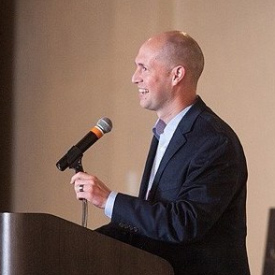The Beauty of Dirty Hands
“Classical education is an agrarian form of education. Modern education is industrial. The human body is made of the dirt of the ground; we can’t know ourselves apart from the garden. It’s simpler, more local, more focused on the rhythms and harmonies of nature and the soul. Someday, perhaps, we’ll be able to see it again. But in my view, classical education must work dialectically with farming to restore a mind that is bound to reality – and happy to be so bound, like a happy marriage or a successful farm.”
– Andrew Kern
Near the back border of campus here at Covenant Classical School in Concord, NC, just in front of the tree line, stands a hand-built greenhouse, several raised bed gardens, a compost pile, and a reading garden, all built by students. As I approach to talk with Bobby Hardin, mastermind of the display before me and all-around mad scientist, I find that he still oversees the work of his lingering horticulture students. It’s after 2:45 p.m. School was over at 2:30, but still they remain…on a Friday. But, that’s not all.
- I once found students checking their plants outside at 7:30 a.m. (30 minutes before school starts).
- Several have given up study hall opportunities to go work in the greenhouse and gardens.
- Mr. Hardin has had to cap the number of students allowed in horticulture and botany classes.
Mr. Hardin is, by all accounts, a skilled science teacher, but he believes that something else has captivated his students. He has observed that, as his students work the ground, plant, dig, build, and get their hands dirty, they find a “communion with God’s creation that we were always intended to have.” Far from simple sentiment, Hardin links this to man’s purpose in creation – being made “of the dust of the ground” (Genesis 2:7) and placed “in the garden of Eden to tend and keep it” (Genesis 2:15).
Additionally, Hardin points to the intense sense of satisfaction that comes from surveying something you built with your hands and eating food you grew yourself as hooks that continue to draw students. As if these things were not enough, students learn to value hard work, patience, and waiting.
My wife and I have already made gardening a key element in homeschooling our children. Temperance (4) and Ian (3) are already learning how to plant and dig, water and tend. They are seeing that God provides food out of the ground and we are teaching them to receive it with humble gratitude and awe. We want them to avoid the modern pitfall of being educated as if they were disembodied minds. More than that, we want them to see the value of dirty hands, not just from play but from work.
Classical education is an agrarian form of education. Man cannot know himself apart from the garden. Let us then find ourselves there.

Brian Phillips
Dr. Brian Phillips serves as a pastor in Concord, NC, where he lives with his wife and their four children.














